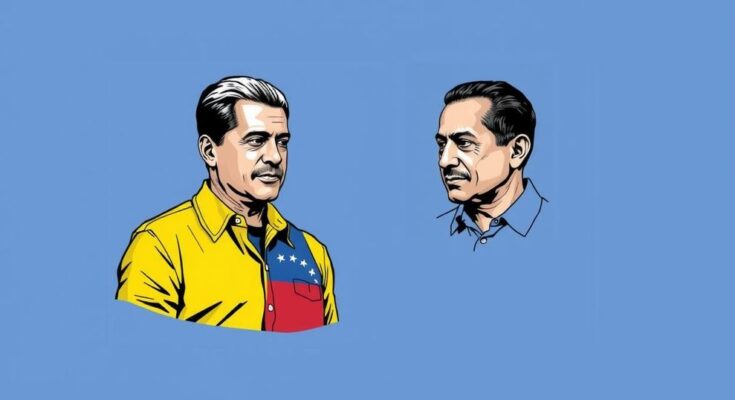The U.S. has imposed sanctions on 21 Venezuelan officials for their roles in suppressing protests after a disputed election in July, which resulted in significant casualties and arrests. This move comes amid growing international concern regarding the legitimacy of the election results and accusations of human rights abuses by the Maduro regime.
The U.S. government has announced sanctions targeting 21 associates of Venezuelan President Nicolás Maduro, citing their involvement in the repression of protests following a contentious presidential election held on July 28. This crackdown resulted in the death of at least 25 demonstrators and the detention of over 2,400 individuals. The sanctions, articulated by the U.S. Department of the Treasury, are framed as a response to efforts to suppress dissent and undermine democratic processes in the country.
In a statement, Bradley Smith, the acting undersecretary of the Treasury, criticized Maduro’s regime, positing, “Maduro and his representatives’ repressive actions in the wake of the Venezuelan presidential election are a desperate attempt to silence the voices of its citizens.” The election itself was marred by allegations of fraud, with opposition leader Edmundo Gonzalez being asserted as the rightful victor based on evidence shared by opposition parties.
The decisions taken by the U.S. administration also reflect a broader stance regarding the state of democracy in Venezuela, with the Carter Center determining that the election failed to meet international electoral standards. Recently, President Joe Biden’s administration recognized Gonzalez as the legitimate leader of Venezuela, further complicating the geopolitical context in the region.
In a separate declaration, the U.S. Department of State detailed that the sanctions primarily focus on security force members and senior officials responsible for obstructing a fair electoral process. They highlighted the systemic abuses, including lethal force against peaceful protestors. To date, the United States has imposed sanctions on a total of 180 individuals associated with Maduro’s government, further signaling an ongoing diplomatic isolation facing the regime.
The political landscape in Venezuela has been fraught with tension, particularly following the recent presidential election which saw Nicolás Maduro claim victory amidst widespread allegations of electoral fraud. The U.S. response through sanctions aims to address the violations of democratic norms, aiming to pressure the Maduro administration while supporting the Venezuelan opposition. This situation sheds light on the broader implications of international diplomacy and human rights advocacy in the context of Venezuela’s turbulent political climate.
In summary, the U.S. has implemented sanctions against Venezuelan officials as a response to their roles in curtailing democratic processes and suppressing protests following a disputed election. The actions underscore both the international community’s disapproval of the Maduro administration’s methods and efforts to support legitimate opposition movements. Continued scrutiny and pressure may be crucial steps toward restoring democratic governance in Venezuela.
Original Source: www.aljazeera.com




